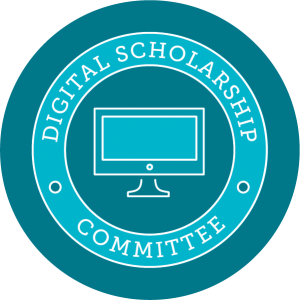Before streaming media, DVDs, or even VHS were common classroom teaching tools, a “multi-media” or audiovisual presentation typically meant 16 mm motion picture films or 35 mm film strips and slides. These presentations often included a musical or audio accompaniment on vinyl records or cassettes as well as a script and activities to be used by the instructor.
Although educational and training films are increasingly recognized by archivists as “historic” and worthy of preservation and digitization, less attention has been paid to the humble film strip and slide. At the Media Library, we believe that the content of these materials still has much to offer students and scholars and that they offer opportunities for discussing the evolution of learning technologies. In 2016 we embarked on a pilot project to digitize and provide access to a small number of filmstrip and slide presentations contained in the Media Library collections including university promotional materials, a mysterious orientation program, and a Cold War era film strip produced by the National Republican Congressional Committee. We hope that this type of work will allow valuable historical materials that are currently “hidden” and inaccessible due to obsolete technologies more widely available to students and scholars.
[News Clip: Hoffman reading] on The Portal to Texas History.
This 1980 news story from the KXAS-NBC 5 News Collection shows Fort Worth students using this learning technology for reading and mathematics.
Slide Presentations
The 35 mm slide presentation projects were completed with the assistance of the Music Library and Digital Projects. The Music Library digitized the compact cassette and Digital Projects scanned the slides. The Media Library used Adobe Premiere Pro to create a digital video from the stills and audio.One difficulty we had with this project was determining when to change images for the Music School orientation. It’s audio accompaniment did not contain the typical cue (beep) for image transitions and we did not have a transcript. For the Media Library Orientation, we had neither audio or print documentation. Although records indicate these materials existed at some point, we were unable to locate them. We are still uncertain whether the images are presented in the proper sequence. While the video presents a fascinating look at the evolution and library technologies and spaces, there is no obvious narrative.[North Texas State University School of Music Orientation] on Digital Library.
[North Texas State University Media Library Orientation] on Digital Library.



Leave a Reply